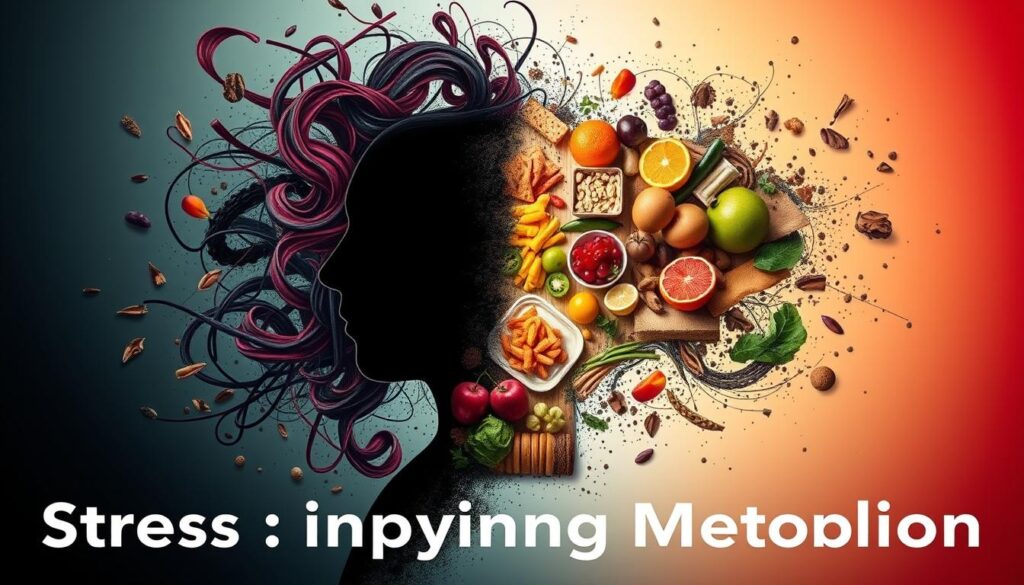Mindful Eating Recipes transform your meals into peaceful sanctuaries. Every bite brings you closer to total well-being. Your kitchen can create mindful eating recipes that lower stress and promote relaxation. Welcome to mindful eating, where wellness cooking ideas blend seamlessly with calm.
In today’s fast-paced world, mindful eating is a breath of fresh air. It’s about being fully present at meals and enjoying mindful eating recipes. This shift from mindless eating to mindful connection can change your health story.
Mindful eating teaches us to listen to our hunger. It’s not just about eating; it’s about cooking with care. This leads to stress-relief recipes on your plate.
It’s a chance to enjoy every flavor and aroma. This makes dining a special, sensory experience with mindful eating recipes. You’re fully involved, bite by bite.
Are you ready for this culinary adventure? Let’s dive into mindful eating recipes.They can turn our meals into moments of joy and calm. It’s time to start enjoying food more.
Key Takeaways
- Discover the essence of mindful eating recipes that prioritize mindfulness, enjoyment, and stress reduction.
- Learn how mindful eating recipes and wellness cooking ideas can improve not just your physical but also your emotional health.
- Understand the connection between mindfulness and satiety signals, enabling you to recognize genuine hunger cues.
- Grasp the importance of being present, slowing down, and savoring mindful eating recipes to enhance digestive health and weight management.
- Gain insights on how mindful eating recipes can prevent overeating and create an elevated, sensorial meal experience.
- Explore strategies to identify and overcome emotional triggers in eating, fostering a non-judgemental attitude towards mindful eating recipes.
Understanding Mindful Eating Recipes and Their Impact on Your Well-being
Welcome to a journey where we change how we see food with mindful eating recipes. We’ll explore mindful eating recipes and how they can boost your health and happiness.
Definition and Origins of Mindful Eating
Mindful eating recipes come from mindfulness, inspired by Buddhism. It means eating fully, noticing the mindful eating recipes‘ colors, smells, and tastes. It’s about listening to your body’s hunger and fullness signals with mindful eating recipes.
The Connection Between Mindfulness and Eating Habits
Mindfulness helps us pause and think before acting with mindful eating recipes. It makes mindful eating recipes more enjoyable, improving digestion and satisfaction. It’s about valuing the quality of our mindful eating recipes.
Recognizing Emotional vs. Physical Hunger
It’s key to know the difference between emotional hunger and physical hunger cues. Emotional hunger is about feelings, not hunger. Physical hunger is our body’s signal to eat.
Factors That Influence Mindless Eating and Its Consequences
Our busy lives can make us eat without thinking. This can lead to eating too much, poor digestion, and health problems. It’s important to be aware of these mindless eating consequences.
| Impact of Mindful Eating | Impact of Mindless Eating |
|---|---|
| Enhanced self-awareness and control | Overconsumption of food |
| Better weight management | Increase in stress-related eating |
| Reduction in binge eating episodes | Disconnected from physical hunger cues |
| Improved psychological well-being | Higher risk of obesity and related diseases |
Starting with mindful eating for beginners might seem tough but is very rewarding. It makes food a source of joy and health.
See each meal as a chance to connect with your food and yourself. This leads to a healthier, happier life with every bite.
The Role of Stress in Eating Behaviors and Digestion
Stress affects our eating habits and digestion. Understanding this connection can lead to a healthier lifestyle. It can also improve our overall well-being.

How Stress Can Lead to Unhealthy Eating Patterns
Chronic stress can change our eating habits. It might make us eat more or in unhealthy ways. We might turn to high sugar and fat foods for comfort.
It’s important to recognize these patterns. This way, we can choose stress-reducing meals that are both nourishing and comforting.
Stress and Its Effects on Metabolism
Stress affects our metabolism in many ways. It can slow it down, leading to weight gain. This makes it hard to lose weight.
Practices that help with stress effects on metabolism can make a big difference. Mindful eating, for example, supports our metabolic health. It also helps us have a better relationship with food.
Coping Mechanisms and Mindful Alternatives to Stress Eating
- Engaging in regular physical activity
- Practicing mindfulness and meditation
- Preparing homemade stress-reducing meals
- Keeping a food and mood journal to understand food choices
To fight stress and its impact on eating, we need to use various stress coping mechanisms. These help our health and mental well-being. By changing how we view food, we can make mealtime a positive experience.
Mindful eating is key in dealing with stress and eating habits. It makes us more aware of our food choices. This awareness helps us overcome stress’s challenges.
Mindful Eating Techniques to Cultivate Awareness
Life moves fast, making it hard to be mindful at meals. Almost 90% of people find it tough to eat mindfully because of distractions. So, it’s key to start with simple, beginner-friendly strategies.
Principles of Mindful Eating for Beginners
First, it’s important to learn the principles of mindful eating. Start with one mindful meal a day and grow from there. Knowing the difference between hunger and cravings helps a lot.
Appreciating where your food comes from also matters. It helps you make better choices for your health and the planet. Being thankful before meals makes you more aware and connected to your food.
This practice also helps you eat better and feel better. It’s a way to break free from emotional eating and choose healthier options.
Strategies for Slowing Down and Savoring Your Food
Using strategies for mindful eating is crucial. Take your time, chew well, and enjoy every part of your meal. This makes eating more enjoyable.
Chewing slowly and pausing between bites helps you digest better. It also helps you know when you’re full. This can take up to 20 minutes.
Eating with others and at set times can make you choose healthier foods. It also brings people together. Making your food look good can make it taste better too.
Overcoming Distractions and Enhancing Mealtime Focus
To get better at mindful eating, focus on your meals. Turn off your phone and other distractions. This lets you enjoy your food fully.
Using all your senses while eating makes it a special experience. Keeping a food journal helps you understand your eating habits. It’s a step towards eating more mindfully.
Mindful eating is more than just a diet. It’s a way to live in the moment and enjoy your meals. It makes you feel better and more connected to your food.
Benefits of Mindful Eating for Weight Management
Mindful eating is more than just eating. It’s a way to connect with food and improve health. It helps with sustainable weight management. It teaches us to appreciate food and make better choices for our health.
One key benefit is better digestion. A 2019 review found that mindful eating improves digestion. It helps us eat slower and absorb nutrients better. This way, we avoid overeating and help with mindful eating weight loss.
Mindful eating also changes how we see food. Eating slowly and without distractions can cut down calories by up to 25%. It lets us enjoy food more, reducing cravings for unhealthy foods.
Here are some compelling statistics supporting the efficacy of mindful eating:
| Benefit | Statistic |
|---|---|
| Average Weight Loss | 5-7% of total body weight |
| Reduction in Caloric Intake | 25% |
| Decrease in Emotional Eating Episodes | 50% |
| Increased Resting Metabolic Rate | 15% |
| Increased Fruits and Vegetables Consumption | 30% |
| Reduction in High-Fat and Sugary Snacks Consumption | 25% |
| Long-term Weight Loss Maintenance | 30% more likely for at least two years |
Mindful eating helps with losing weight and teaches us why we eat. It builds a mindful connection that helps keep weight off. It’s for anyone wanting to change their food relationship in a healthy way.

Identifying and Overcoming Unhealthy Eating Triggers
Finding out what makes us eat unhealthy is key to better living. Studies show 75% of our eating is driven by emotions like stress or boredom, not hunger. To beat these triggers, we need to understand why we crave certain foods and change our automatic reactions.
Picture this: it’s late, you’re watching TV, and you grab chips. It’s common, with 20% of people eating in front of screens and eating more. But, we can make better choices by being aware. For example, having fruit nearby instead of junk food can help us eat better.
Studies also show that enjoying the first bite of food can make us feel fuller and eat less. So, how do we stop unhealthy eating? Mindfulness helps, as shown in a 2014 study. Keeping a journal can help us understand our eating habits and make better choices.
The Balanced Plate Activity teaches us to make meals that are satisfying and prevent overeating. By slowing down and listening to our body, we can eat more mindfully. This shift helps us move from reacting to food to making healthier choices.

